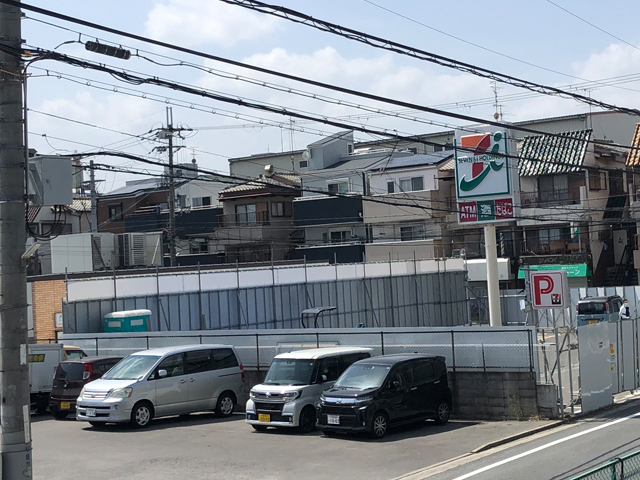
Japanese convenience stores have everything, even passive-aggressiveness!
For almost all of 2019, a lone 7-Eleven franchisee in Higashiosaka City, Osaka, made national headlines after it challenged the corporate policy of staying open 24 hours a day. Citing lack of staff as the reason, the owner Mitoshi Matsumoto took it upon himself to close overnight.
In response, on 31 December 2019, the company ended their contract with Matsumoto claiming that they had received complaints about the way he treated customers. Normally, this would mean the shop would close, but Matsumoto surprised everyone by continuing to run the store for a few weeks after.
After speaking with the owner, he told us he would not accept the termination of the contract until a court ruled on it. So, he kept the store running with a skeleton crew and without any 7-Eleven amenities like an official cash register, ATM, or prepaid cards, until all of the stock was sold off.
Afterward, the store stood vacant for most of 2020, with a sign in the window that read: “Closed due to legal battle, and COVID-19.”
The head office apparently was growing impatient and issued an ultimatum to Matsumoto that if he did not surrender ownership of the store by 29 March, they would build another “temporary” shop in the parking lot of the existing one.
The courts attempted to intervene, fearing the situation might escalate, but Matsumoto said he would never give up because it would appear as if 7-Eleven was in the right. So a few days later, on 1 April, construction began on a 7-Eleven in the parking lot of another 7-Eleven.
▼ The 7-Eleven on 4 January, 2020
▼ The 7-Eleven on 2 April, 2021
One of the benefits of this store is that it has a relatively spacious parking lot, big enough to accommodate another building. In fact, it was reported that some of the supposed conflicts between Matsumoto and customers was over misuse of the ample parking.
This land itself is rented from a third party by 7-Eleven, whereas the old building is still technically owned by Matsumoto, until the courts or he decides otherwise. This means that the company had to pay rent on an unusable lot for over a year now, but also has the right to use the space outside of the store however they see fit.
▼ Construction wall of the new 7-Eleven in front of the old 7-Eleven
In the past, Matsumoto’s outspoken nature tended to cast him in an unfavorable light in the Japanese media. However, this recent development seems to have swayed public opinion slightly in his favor.
“I still think this is the owner’s fault, but 7-Eleven is really making themselves look bad here.”
“This is why I can’t use 7-Eleven.”
“I don’t feel good about this.”
“The company is paying for the land, so they should be able to use it.”
“This owner is kind of a jerk, isn’t he?”
“I stopped trusting 7-Eleven after they constantly lied about their packaging.”
“I think both sides are wrong here.”
“7-Eleven collect the highest royalties from franchise holders out of any conveniences store chain. They make it hard for them to operate.”
“What the hell is going on there?”
Matsumoto was interviewed by NHK on the day construction began and told them he strongly disapproved of the construction, but said he had to focus on his ongoing legal battle and couldn’t do anything about it.
▼ Paper sign: ”Seven headquarters, please stop the improper use of force!”
Local residents have mixed feelings about the situation. Many find this new development bizarre and a nuisance, but some are happy they can finally have an operating convenience store in the area again.
▼ This location was the only convenience store near a number of factories and warehouses
The new structure is expected to be complete by the end of April, and we’ll be sure to check it out when it opens. Because regardless of who is right or wrong in this situation, it is definitely going to be weird.
Source: NHK
Images: ©SoraNews24
● Want to hear about SoraNews24’s latest articles as soon as they’re published? Follow us on Facebook and Twitter!

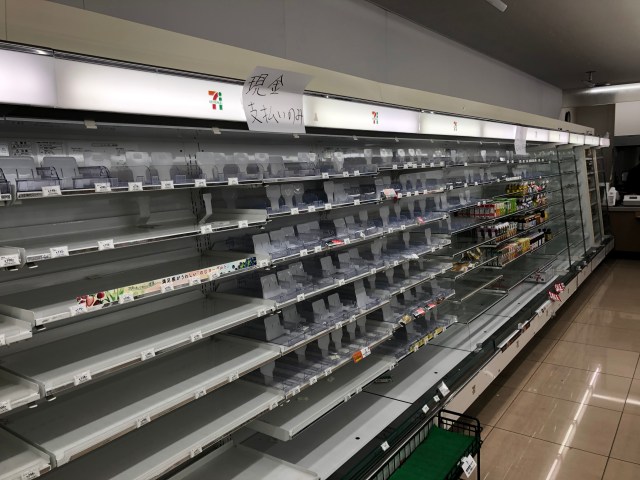
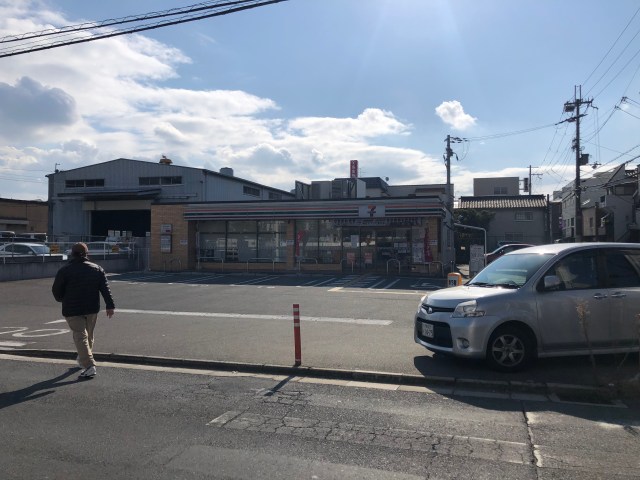
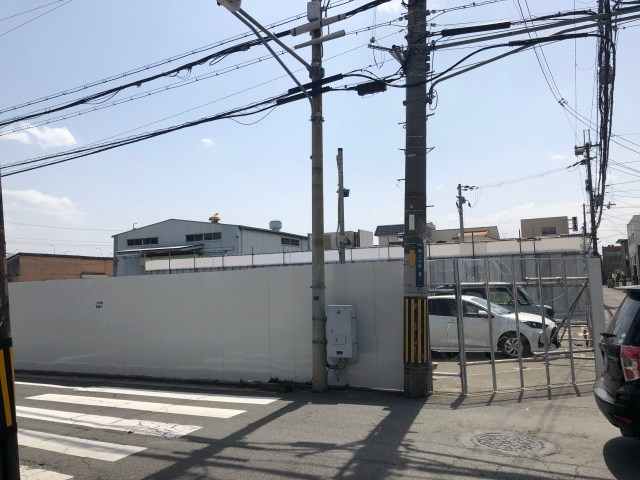
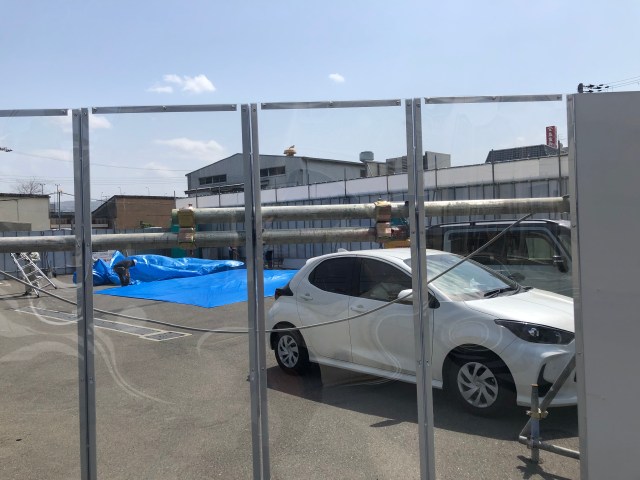
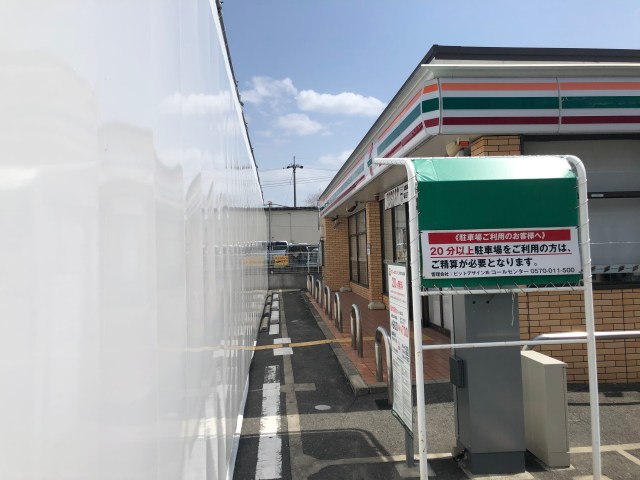
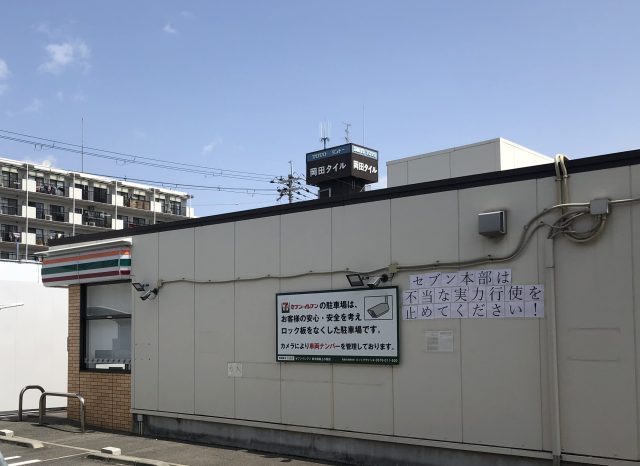
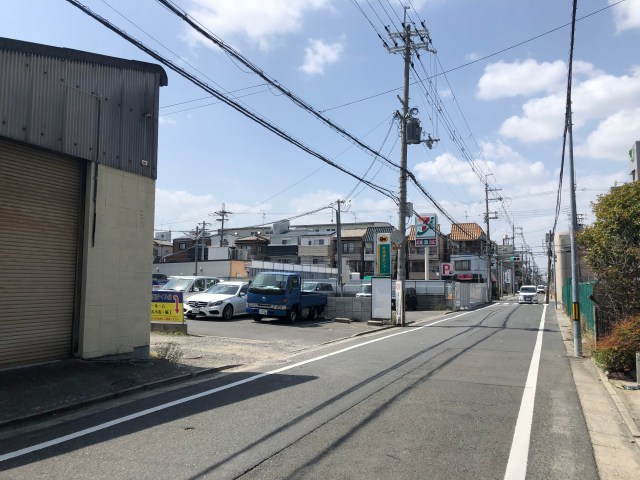
 Inside the rogue 7-Eleven, a convenience store completely cut off by its company
Inside the rogue 7-Eleven, a convenience store completely cut off by its company Japanese convenience store’s cheap knockoff croissant — is it any good?
Japanese convenience store’s cheap knockoff croissant — is it any good? “Conbini warp” an increasing traffic problem for businesses and authorities across Japan
“Conbini warp” an increasing traffic problem for businesses and authorities across Japan Half of 7-Elevens in Japan to start selling 100-yen Daiso products this month
Half of 7-Elevens in Japan to start selling 100-yen Daiso products this month 7-Eleven teams up with Attack on Titan to bring you new video short, prizes galore!
7-Eleven teams up with Attack on Titan to bring you new video short, prizes galore! Japan’s new difficult-to-drink-from beer glass protects your liver, but it’s a brutal experience
Japan’s new difficult-to-drink-from beer glass protects your liver, but it’s a brutal experience How to order snacks on a Shinkansen bullet train in Japan
How to order snacks on a Shinkansen bullet train in Japan Demon Slayer: Kimetsu no Yaiba gets new roller coaster attractions and food at Universal Studios Japan
Demon Slayer: Kimetsu no Yaiba gets new roller coaster attractions and food at Universal Studios Japan New Pokémon ice cream, dessert drinks, and cool merch coming to Baskin-Robbins Japan【Pics】
New Pokémon ice cream, dessert drinks, and cool merch coming to Baskin-Robbins Japan【Pics】 Burger King Japan suddenly adds Dr. Pepper and Dr. Pepper floats to its menu nationwide
Burger King Japan suddenly adds Dr. Pepper and Dr. Pepper floats to its menu nationwide Hello, cosmetics! Clinique teams up with Hello Kitty this summer for first-time collaboration
Hello, cosmetics! Clinique teams up with Hello Kitty this summer for first-time collaboration “The most Delicious Cup Noodle in history” – Japan’s French Cup Noodle wins our heart【Taste test】
“The most Delicious Cup Noodle in history” – Japan’s French Cup Noodle wins our heart【Taste test】 To combat declining birth rate, Japan to begin offering “Breeding Visas” to foreigners
To combat declining birth rate, Japan to begin offering “Breeding Visas” to foreigners Starbucks teams up with Japanese shochu brewery for a whole new coffee experience
Starbucks teams up with Japanese shochu brewery for a whole new coffee experience Studio Ghibli releases giant Totoro plushies in Japan
Studio Ghibli releases giant Totoro plushies in Japan Nintendo history you can feel – Super NES, N64, and GameCube controllers become capsule toys
Nintendo history you can feel – Super NES, N64, and GameCube controllers become capsule toys Starbucks releases a cute Frappuccino and Unicorn Cake…but not in Japan
Starbucks releases a cute Frappuccino and Unicorn Cake…but not in Japan Kyoto Tower mascot termination reveals dark side behind cute Japanese characters
Kyoto Tower mascot termination reveals dark side behind cute Japanese characters McDonald’s Japan’s Soft Twist Tower: A phantom ice cream only sold at select branches
McDonald’s Japan’s Soft Twist Tower: A phantom ice cream only sold at select branches Yabai Ramen: What makes this Japanese ramen so dangerous?
Yabai Ramen: What makes this Japanese ramen so dangerous? Finally! Nintendo Japan expands Switch 8-bit controller sales to everybody, Online member or not
Finally! Nintendo Japan expands Switch 8-bit controller sales to everybody, Online member or not Japanese government wants to build luxury resorts in all national parks for foreign tourists
Japanese government wants to build luxury resorts in all national parks for foreign tourists 10 things you should buy at 7-Eleven in Japan
10 things you should buy at 7-Eleven in Japan Studio Ghibli releases anime heroine cosplay dresses that are super comfy to wear
Studio Ghibli releases anime heroine cosplay dresses that are super comfy to wear Woman charged for driving suitcase without a license in Osaka
Woman charged for driving suitcase without a license in Osaka Studio Ghibli unveils My Neighbour Totoro miniature house model
Studio Ghibli unveils My Neighbour Totoro miniature house model Kyoto experiencing problems with foreign tourists not paying for bus fares, but not on purpose
Kyoto experiencing problems with foreign tourists not paying for bus fares, but not on purpose Fighting mild hunger with a Japanese soda that turns into jelly in the stomach【Taste test】
Fighting mild hunger with a Japanese soda that turns into jelly in the stomach【Taste test】 Studio Ghibli’s Howl’s Moving Castle tapestry unveiled in Japan for first time
Studio Ghibli’s Howl’s Moving Castle tapestry unveiled in Japan for first time McDonald’s new Happy Meals offer up cute and practical Sanrio lifestyle goods
McDonald’s new Happy Meals offer up cute and practical Sanrio lifestyle goods Sales of Japan’s most convenient train ticket/shopping payment cards suspended indefinitely
Sales of Japan’s most convenient train ticket/shopping payment cards suspended indefinitely Sold-out Studio Ghibli desktop humidifiers are back so Totoro can help you through the dry season
Sold-out Studio Ghibli desktop humidifiers are back so Totoro can help you through the dry season Japanese government to make first change to romanization spelling rules since the 1950s
Japanese government to make first change to romanization spelling rules since the 1950s Foreigner’s request for help in Tokyo makes us sad for the state of society
Foreigner’s request for help in Tokyo makes us sad for the state of society Ghibli founders Toshio Suzuki and Hayao Miyazaki contribute to Japanese whisky Totoro label design
Ghibli founders Toshio Suzuki and Hayao Miyazaki contribute to Japanese whisky Totoro label design Doraemon found buried at sea as scene from 1993 anime becomes real life【Photos】
Doraemon found buried at sea as scene from 1993 anime becomes real life【Photos】 Tokyo’s most famous Starbucks is closed
Tokyo’s most famous Starbucks is closed Princesses, fruits, and blacksmiths: Study reveals the 30 most unusual family names in Japan
Princesses, fruits, and blacksmiths: Study reveals the 30 most unusual family names in Japan Taste testing 7-Eleven Japan’s five frozen curries to see which ones nail it
Taste testing 7-Eleven Japan’s five frozen curries to see which ones nail it 7-Eleven Japan’s “Paper Tiger” sandwich sparks online controversy over deceptive packaging
7-Eleven Japan’s “Paper Tiger” sandwich sparks online controversy over deceptive packaging Manga author who groped girl’s breasts on Tokyo street won’t have to spend any time in jail
Manga author who groped girl’s breasts on Tokyo street won’t have to spend any time in jail 7-Eleven’s new whipped cream sandwich takes Japanese convenience store food to a whole new level
7-Eleven’s new whipped cream sandwich takes Japanese convenience store food to a whole new level Japanese pantyhose commercial quiz asks viewers to pick out the sole woman in stockings 【Video】
Japanese pantyhose commercial quiz asks viewers to pick out the sole woman in stockings 【Video】 Car crashes into Hiroshima 7-Eleven, owner gets guard rails, car crashes into gap in the rails
Car crashes into Hiroshima 7-Eleven, owner gets guard rails, car crashes into gap in the rails 10 things you should buy at 7-Eleven in Japan
10 things you should buy at 7-Eleven in Japan 7-Eleven escalates anime goody arms race with gigantic Evangelion statue that could be yours
7-Eleven escalates anime goody arms race with gigantic Evangelion statue that could be yours 7-Eleven Japan now has plant-based vegetarian steamed “meat buns”
7-Eleven Japan now has plant-based vegetarian steamed “meat buns” 9 million yen awarded to convenience store from man for over 11,000 hours of unauthorized parking
9 million yen awarded to convenience store from man for over 11,000 hours of unauthorized parking We taste-test 7-Eleven’s new fusion cuisine: the Cheese Dak-galbi Burrito!
We taste-test 7-Eleven’s new fusion cuisine: the Cheese Dak-galbi Burrito! Which Japanese convenience store sells the best onigiri rice balls?【Taste test】
Which Japanese convenience store sells the best onigiri rice balls?【Taste test】 Which convenience store has the best kakuni Japanese braised pork? We find out【Taste test】
Which convenience store has the best kakuni Japanese braised pork? We find out【Taste test】 This 7-Eleven convenience store causes a buzz with foreigners online
This 7-Eleven convenience store causes a buzz with foreigners online 7-Eleven Japan to double the shelf life of their onigiri rice balls
7-Eleven Japan to double the shelf life of their onigiri rice balls The Fuwatoro Yamaimo Teppan just might be 7-Eleven Japan’s dish of the year【Taste test】
The Fuwatoro Yamaimo Teppan just might be 7-Eleven Japan’s dish of the year【Taste test】
Leave a Reply